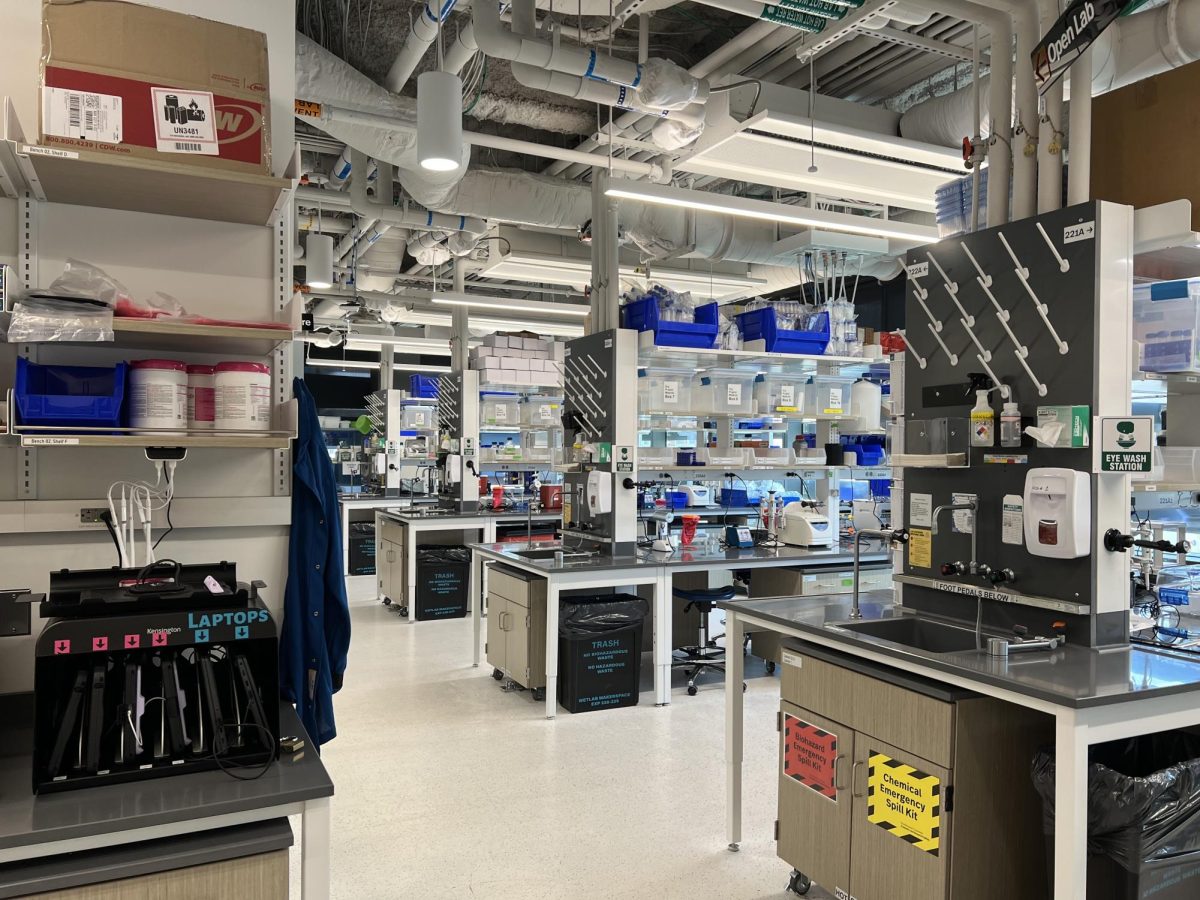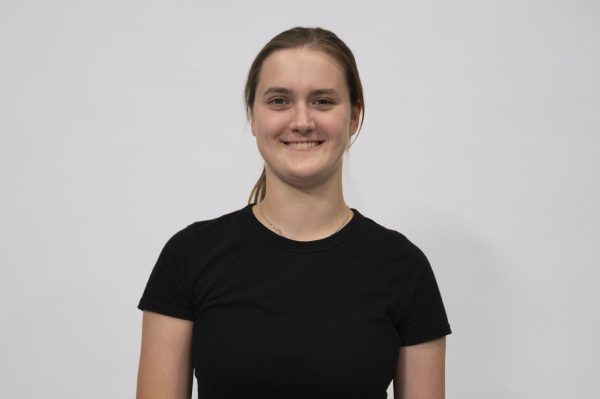At Northeastern’s Research Alliance in Science and Engineering project, researchers aim to answer one essential question: What is the most effective way to tackle water contamination?
The Research Alliance in Science and Engineering, or RAISE, project, co-founded by chemistry and chemical biology associate professor Vasiliki Lykourinou in 2017, offers students the chance to study potential sustainable treatment options for polluted water. Lykourinou said her undergraduate students were the ones who created the initiative, which started as a course development project and evolved into an original research group with students in leadership roles.
“They take leadership in leading the project with my supervision, and then they design the model,” she said. “They studied this at a very high level of research as their project.”
The students in RAISE work together to find better ways to clean contaminated water using chemicals that break down harmful substances.
The team currently consists of five consistent students who work in the lab, outlining research questions and methods and carrying them out.
Operating out of the Wet Lab Makerspace at EXP, which opened in summer 2024, students have access to equipment including microscopes, polymerase chain reaction machines and specialized biosafety laboratories. The space lets students apply ideas and theories that enhance campus research programs, said Helen Kurkjian, the senior Makerspace manager. She sees significant potential in offering students access to advanced equipment for experimentation and education.
“I think it provides opportunities to make your own choices, and therefore, opportunities to fail,” Kurkjian said. “When I run into a particular problem, how do I troubleshoot that problem?”
At the heart of the team’s research is an electrochemistry system that generates hydrogen peroxide using electricity, coupled with a specially-designed catalyst that breaks down water pollutants. The team has targeted many contaminants ranging from estrogen — which negatively impacts aquatic ecosystems — to pharmaceutical waste.
This semester’s objective prepares new catalysts altered with metal ions to see if they can degrade a model compound in water. If successful, this approach could be used to break down pollutants in contaminated water.
Experienced students informally mentor newer members through hands-on sustainability-focused research projects, allowing all participants to gain practical experience.
“When I joined, I was mentored by an [upperclassman] student who taught me everything from lab safety to conducting experiments,” said Ian Rocha, a fourth-year chemical engineering and environmental engineering combined major. “Now, I’ve stepped into that same role, mentoring younger students.”
The project has evolved into a full-fledged research program with weekly meetings for planning experiments. Mariella Fayad, a second-year biology and political science combined major who is working with RAISE this semester, said that during meetings, the team clarifies scientific concepts, reviews data, exposes new members to standard procedure and offers hands-on guidance from experienced peers.
Importantly, Rocha said the low-stakes environment of RAISE allows students to focus on learning, and the program embraces failure as a learning opportunity.
“Research is a lot of failing,” he said. “Even today, we don’t know if our experiment will work — the point is to figure it out.”
Fayad explained that the team collaborates on experiments, which helps members get comfortable with the lab and learn from their mistakes.
“I’d feel more relaxed and more able to interact with the materials we’re using, the tools we’re using, and I was no longer as afraid to take initiative,” Fayad said.
Rocha also said how lab accessibility, combined with approachable leadership and peer support, has created an environment where undergraduate researchers can thrive.
Lykourinou said the team is preparing to publish its findings and expand its research to address a broader range of contaminants. Through this student-led initiative, RAISE hopes to demonstrate how democratized research can drive scientific innovation while uplifting the next generation of scientists.
“Now, we developed the system, we modeled it, we understand it and now we want to see what else we can do with it,” Lykourinou said.










